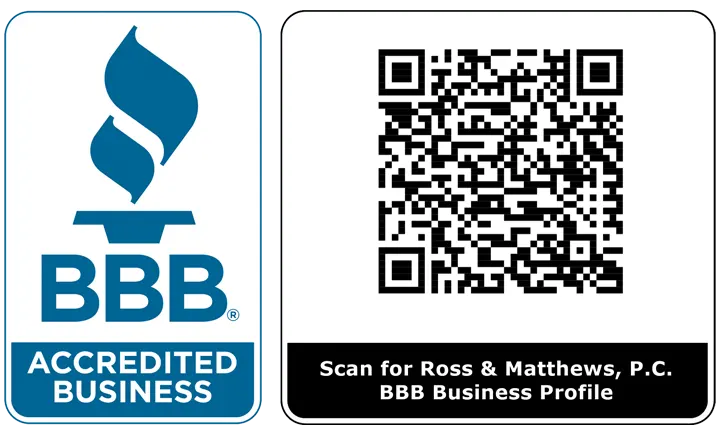Litigation is the process of engaging in a civil lawsuit to resolve a dispute. It involves numerous rules and practices required by the court system, and includes a wide range of subject matters, from automobile accidents to evictions to contract disputes.
If you have been served with a civil lawsuit, you may have coverage under your LegalShield plan and you should contact Ross & Matthews as quickly as possible. If you need to file a lawsuit, our lawyers are available to give you advice and consultation on the process, and to assist you with representation under the discount referral benefit of your plan.
Compromise and settlement. A way to discharge a claim whereby the parties agree to give and accept something in settlement of the claim that will replace the terms of the parties’ original agreement. Accord is the new agreement; satisfaction is performance of the new agreement.
A written statement of facts confirmed by the oath of the party making it, before a notary or officer having authority to administer oaths. In civil cases, affidavits of witnesses are often used to support motions for summary judgment.
A dispute resolution process which does not involve the parties going to a final court hearing to resolve the matter. There are a number of forms of ADR, including mediation and arbitration.
The defendant’s response to the plaintiff’s allegations as stated in a civil complaint. Some courts require an item-by-item, paragraph-by-paragraph response to points made in a complaint; part of the pleadings.
In the law of evidence, the necessity or duty of affirmatively proving a fact or facts in dispute on an issue raised between the parties in a lawsuit. The responsibility of proving a point or points: The level of the burden of proof for a type of case indicates the degree to which the point must be proven. In a civil case the burden of proof rests with the plaintiff, who must establish his/her case by such standards of proof as a preponderance of evidence or clear and convincing evidence.
The reason for which a Plaintiff files a complaint or suit against someone. This can be negligence, breach of contract, malpractice or defamation, to name a few. A cause of action is divided into elements, and each element must be proved to win the case.
The set of rules and process by which a civil case is tried and appealed, including the preparations for trial, the rules of evidence and trial conduct, and the procedure for pursuing appeals.
Money awarded by a court to a person injured by the unlawful act or negligence of another person.
A judgment entered against a party who fails to appear in court or respond to the civil complaint or petition.
Person against whom the claim is made.
Investigation and gathering of information by opposing parties prior to going to trial. The tools of discovery include: interrogatories, depositions, production of documents or things, permission to enter land or other property, physical and mental examinations, and requests for admission.
An order that ends the lawsuit between the parties, resolves the merits of the case, and leaves nothing to be done but enforcement.
A legal proceeding in which a debtor’s money, which is in the possession of another (called the garnishee), is applied to the debts of the debtor, such as when an employer garnishes a debtor’s wages.
A legal doctrine that makes each of the parties who are responsible for an injury liable for all the damages awarded in a lawsuit if the other responsible parties cannot pay.
A legal action started by a plaintiff against a defendant based on a complaint that the defendant failed to perform a legal duty, resulting in harm to the plaintiff.
A form of ADR that is often used. It involves the parties appointing an independent third party to help facilitate a settlement. The parties (and their lawyers, if they are represented) will usually attend a meeting to try and reach a settlement. These meetings are non-binding, which means the parties are not required to come to an agreement. If a mediation has been ordered by a Court, the mediator will send a report on the mediation to the court after it is over.
Power which a court has over the defendant’s person and which a court must have before it can enter a judgment affecting the defendant’s rights.
The person making the claim.
Where documents are privileged the party can refuse to allow inspection of these documents. For example documents created between the client and his legal advisors and correspondence between the legal advisors are subject to legal professional privilege.
Latin term meaning “on one’s own behalf”; in courts, it refers to persons who present their own cases without lawyers.
Certain documents, such as the claim form, must be served upon (provided to) the parties. Service must be carried out in accordance with the CPR.
Where the parties agree to resolve the claim without going to trial.
A judge’s order forbidding certain actions until a full hearing can be held. Usually of short duration. Often referred to as a TRO.
Follow Us
The information you obtain on this website is not, nor is it intended to be, legal advice. Consult an attorney for advice regarding your individual situation. We invite you to contact us and welcome your calls, letters and email. Contacting us does not create an attorney-client relationship. Please do not send any confidential information to us until such time as an attorney-client relationship has been established.
